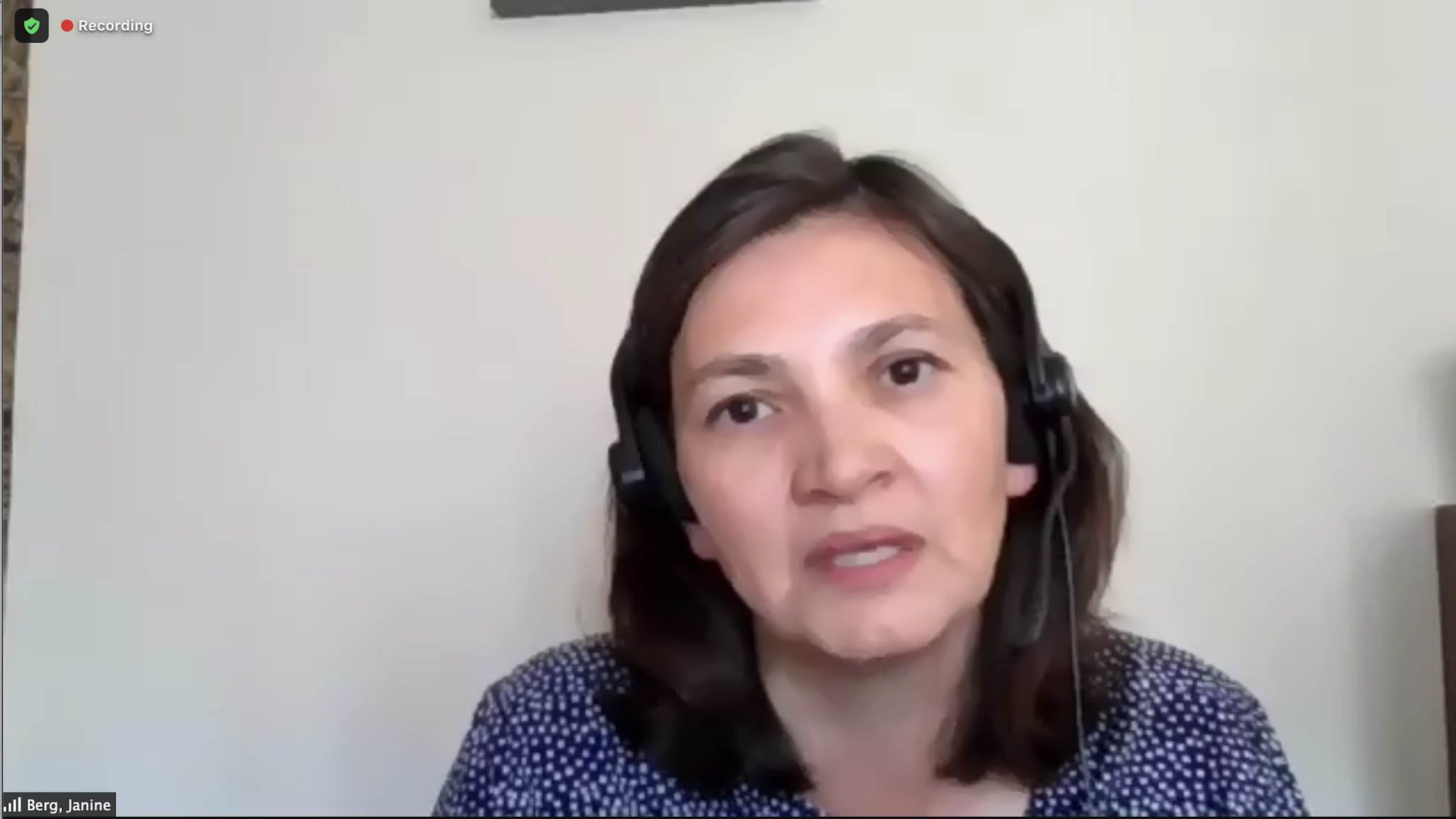Webinar: Platform work Global North & South
The webinar “Platform work in the Global North and the Global South: same problems, same solutions?" is organised by the Workers’ Innovation Centre (Metropolitan and Labour University/Argentine Council for Scientific and Technical Research), the Gino Germani Research Institute (University of Buenos Aires), the School of Histories, Languages and Cultures (University of Liverpool), and the AIAS-HSI (University of Amsterdam)begins with a welcome address by Julieta Haidar (Workers’ Innovation Centre, Metropolitan and Labour University/Argentine Council for Scientific and Technical Research) and Mariya Ivancheva (School of Histories, Languages and Cultures, University of Liverpool).The first panel, Work in global platform capitalism, is chaired by Petar Marčeta (AIAS-HSI, University of Amsterdam) and the first speaker is Julieta Haidar (Workers’ Innovation Centre, Argentina) who introduces the work they do on platforms and discusses the power relations inscribed in the precarious situation for international labour. The question is whether it is possible to talk about this problem in all its complexity taking all the various aspects into account. The next speaker is Maarten Keune (AIAS-HSI, University of Amsterdam) and he discusses the discourses/perspectives of exploitation vs. opportunities that can be found in his and Haidar's new book, Work and Labour Relations in Global Platform Capitalism. Often the global north provides the work opportunities and the global north provides the work force and Keune highlights the outcomes of these perspectives - the commodification of people. The third speaker is Janine Berg (International Labour Organization) and she focuses on online platforms, not local ones. A study has been conducted on the attitude and conditions (salary, tasks etc) of workers around the world. She concludes that the only way of dealing with the issues a worldwide labour market brings is international regulation and laws.The second panel, Migrant workers and labour platforms, is chaired by Lucía Bachoer (IIGG, University of Buenos Aires). The first speaker is Niels Van Doorn (Department of Media Studies, University of Amsterdam). He argues that fragmented capital (individual restaurants etc) to concentrated capital (platforms for delivery of food, the gig economy), reorganising this form of work. This has led to a decline in wages for people in this sector resulting in this becoming a migrant sector of the labour market. Gig platforms absorb migrant labour and eases the pressure on low-wage labour markets. It becomes the "quick and easy" way for migrant workers to get a foot onto the labour market and becomes a means to an end – even if many of them get stuck in this type of work – "a lifeline without a safety net." He is reluctant to conclude that regulation would be the answer, though.The second talk is held by Jésica Pla (IIGG, University of Buenos Aires) and Mariya Ivancheva (HLC, University of Liverpool). They talk about the migrant populations in South America, for instance highly skilled (for instance technical degree from university) Venezuelans who work in low-skill positions (gig economy, informal economy, delivery business) in Argentina. Their results go in the opposite direction compared to the previous speaker, Niels van Doorn.The third speaker and last speaker on this panel is Tibor Meszmann (Central European Labour Studies Institute, Bratislava). He talks about the "invisible" workers who have very few rights in Hungary anymore.Panel 3 focuses on "Precarity and labour relations in labour platforms" and is chaired by Nicolás Diana Menéndez (Workers’ Innovation Centre, Argentina). The first speaker is María Belén Albornoz (Latin American Faculty of Social Sciences, Ecuador). She outlines the situation for migrants in Equador and discusses how the government has introduced regulations for the gig economy. As a result, immigrant workers have been employed by subcontractors instead, enabling structural forms of exploitation. Anna Ilsøe and Trine Pernille Larsen (FAOS, University of Copenhagen) have the second slot of the panel.Anna Ilsøe begins by outlining their work. Theoretically, they draw on segmentation theory, and, drawing on the Danish Labour Force survey from 2017 and 2019, they conclude that the gig platform economy is quite limited at this point in the Danish context, which is mirrored in the more general Nordic setting.The third speaker is Kurt Vandaele (European Trade Union Institute). Vandaele discusses the bargaining power of platform work.He argues that international regulatory provisions are needed.The webinar ends with a final discussion featuring Julieta Haidar summing up the topics in the different presentations. María Belén Albornoz points out that the wages from the gig economy is the main income for workers in the global south, whereas it is a side income for workers in the global north. Maarten Keune, Anna Ilsøe and Trine Pernille Larsen continue to discuss the situation in northern Europe, and Trine Pernille Larsen draws attention to a study they are currently conducting which delves deaper into the Danish gig economy situation.






























Comments
Post a Comment